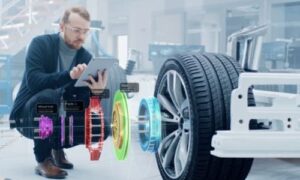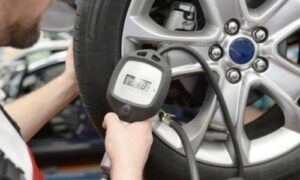Introduction
Electric car technology has witnessed significant advancements in recent years, transforming the automotive industry and paving the way for a sustainable, eco-friendly transportation future as the world becomes increasingly concerned about climate change and the depletion of fossil fuels. Electric cars have emerged as a promising solution. This article delves into the future of electric car technology, exploring the latest innovations and developments to shape the industry in the coming years.
Increasing Range and Battery Technology
One of the primary concerns for electric car owners has been the limited driving range compared to traditional internal combustion engine (ICE) vehicles. However, the future of electric car technology holds exciting prospects in this area. Ongoing research and development efforts are focused on improving battery technology to enhance energy storage and extend the range of electric vehicles (EVs). Scientists are exploring new materials, such as solid-state batteries, which offer higher energy density and faster charging capabilities. With advancements in battery technology, we can expect electric cars to achieve ranges comparable to their gasoline-powered counterparts, eliminating range anxiety and expanding the practicality of EVs.
Rapid Advancements in Charging Infrastructure
The availability of a robust charging infrastructure is vital for the widespread adoption of electric cars. Significant investments have been made to expand charging networks globally in recent years. Fast-charging stations are installed along highways and urban areas, enabling EV owners to charge their vehicles quickly and conveniently. Moreover, wireless charging technologies are being developed, allowing EVs to set up without physical connections. With a growing network of charging stations and technological advancements, recharging an electric car will become as convenient as refueling a conventional vehicle, encouraging more consumers to switch to electric cars.
Integration of Smart and Autonomous Features
The future of electric car technology is closely intertwined with the development of intelligent and autonomous features. Electric vehicles are well-suited for integrating advanced driver-assistance systems (ADAS) and self-driving capabilities. Electric cars’ drivetrains provide a seamless platform for integrating sensors, artificial intelligence, and connectivity features necessary for autonomous driving. These advancements will not only enhance safety but also improve the overall efficiency and user experience of electric cars. With autonomous capabilities, electric vehicles can be optimized for energy efficiency, reducing traffic congestion and improving road safety.
Lightweight Materials and Aerodynamics
Efficiency plays a crucial role in electric car technology. To maximize the range and performance of electric vehicles, manufacturers are exploring using lightweight materials and improved aerodynamics. Lightweight materials like carbon fiber-reinforced polymers and aluminum alloys reduce the vehicle’s weight, enhancing energy efficiency and extending the driving range. Furthermore, sleek and aerodynamic designs minimize drag, reducing energy consumption at high speeds. The integration of lightweight materials and aerodynamics in electric car design will continue to evolve, making EVs more energy-efficient and enhancing their overall performance.
Vehicle-to-Grid (V2G) Technology
Another exciting aspect of the future of electric car technology is the concept of Vehicle-to-Grid (V2G) integration. V2G technology allows electric cars to serve as mobile energy storage devices, capable of supplying electricity back to the grid during peak demand periods. This bidirectional flow of energy benefits both vehicle owners and the power grid. EV owners can sell excess energy stored in their vehicle batteries to the grid, earning credits or monetary compensation. Simultaneously, utility companies can utilize this distributed storage system to balance the load and increase the overall stability and reliability of the electric grid.
Sustainable Manufacturing and Recycling
As electric car technology advances, there is a growing emphasis on sustainable manufacturing and recycling practices. Manufacturers are increasingly adopting eco-friendly production processes and utilizing recycled materials in vehicle construction. Additionally, efforts are being made to establish efficient recycling programs for electric vehicle batteries. Recycling batteries reduces waste and allows the recovery of valuable materials, such as lithium and cobalt. This minimizes the environmental impact of electric car production and disposal.
According to a report by the International Labour Organization (ILO), the transition to electric mobility could result in a net increase of 10 million jobs worldwide by 2030. These jobs span manufacturing, research, development, charging infrastructure deployment, and maintenance sectors.
Vehicle-to-Vehicle (V2V) Communication
In the future of electric car technology, V2V communication is set to play a crucial role in enhancing road safety and traffic efficiency. V2V technology enables electric vehicles to communicate with one another, sharing real-time data about their speed, location, and intentions. This exchange of information allows EVs to anticipate potential collisions, provide warnings to drivers, and coordinate movements to avoid accidents. With V2V communication, electric cars will become integral to a connected and safer transportation ecosystem.
Solar Integration for Extended Range
Innovations in solar integration hold great promise for increasing the range and efficiency of electric cars. Solar panels integrated into the body of electric vehicles can harness sunlight and convert it into electricity, supplementing the vehicle’s battery charging process. At the same time, solar technology alone may not fully power an electric car. It can significantly extend the driving range, especially during idle or parked situations. As solar technology improves, electric vehicles will become even more sustainable and independent of conventional charging infrastructure.
Energy Regeneration and Brake Regeneration Systems
Energy regeneration systems capture and store energy that would otherwise be wasted during braking or deceleration. As electric cars operate on regenerative braking, the vehicle’s kinetic energy is converted into electrical energy and stored in the battery for later use. This feature not only increases the efficiency of electric cars but also contributes to the overall longevity of the storm. In the future, advancements in energy regeneration technologies will optimize stored energy utilization, further improving electric vehicles’ driving range and efficiency.
Internet of Things (IoT) Integration
Integrating Internet of Things (IoT) technology in electric cars opens up new possibilities for connectivity, data analytics, and personalized user experiences. IoT-enabled electric vehicles can interact with various smart devices and services. Allowing drivers to control vehicle functions remotely, receive real-time diagnostics, and access personalized infotainment options. IoT integration will revolutionize how we interact with electric cars, making them more intuitive, convenient, and seamlessly connected to our digital lives.
Wireless Battery Charging
Wireless battery charging technology is set to revolutionize the way electric vehicles recharge. These charging systems use electromagnetic fields to transfer energy between a charging pad on the ground and a receiver on the car. This eliminates the need for physical connections, making charging more convenient and reducing wear and tear on charging ports. As wireless charging infrastructure becomes more widespread, electric cars will have the flexibility to recharge seamlessly at designated parking spots, eliminating the need for manual plugging and unplugging.
Artificial Intelligence for Predictive Maintenance
Artificial Intelligence (AI) will play a critical role in the future of electric car maintenance. AI-driven predictive maintenance systems can continuously monitor the vehicle’s performance. Analyzing data from various sensors to identify potential issues before they escalate. By proactively detecting and addressing maintenance needs, electric car owners can avoid costly repairs and ensure their vehicles’ optimal performance and longevity. AI-based predictive maintenance will enhance the reliability of electric cars and streamline the overall ownership experience.
Conclusion
The future of electric car technology appears bright, with continuous advancements poised to transform the automotive industry. Increasing driving ranges, rapid developments in charging infrastructure, and sustainable manufacturing practices are vital areas shaping electric cars as governments and consumers worldwide prioritize sustainability and environmental consciousness. Electric vehicles are set to play a pivotal role in creating a greener and cleaner future of transportation.






